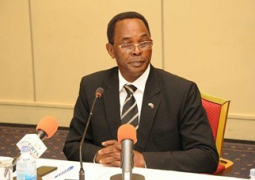
In the aviation sector, the domestication of flights between two countries—such as The Gambia and Senegal—involves:
The direct operation of flights by national or local airlines, under the control of relevant authorities, rather than by foreign carriers or through international leasing arrangements.
Local management of aviation operations, including coordination among airport authorities, regulatory oversight, and infrastructure maintenance.
Facilitating travel for citizens of both countries, thereby promoting increased mobility without reliance on international or foreign flights.
The Context:
From July 27 to 30, 2025, a delegation from Air Senegal, led by its Director General, Mr. Tidiane Ndiaye, visited Banjul. This mission aimed to strengthen exchanges with Gambian authorities, notably the Ministry of Tourism and Civil Aviation, as well as key sector players: the Gambian Civil Aviation Authority (GCAA), the national airline GIA, and influential economic actors such as SaHel and NIRO Company.
These meetings were rich in constructive dialogue, laying the groundwork for a solid collaboration towards the domestication of flights between our two countries.
A Strategic Initiative for Regional Integration:
The concept of domestication of flights between The Gambia and Senegal is part of a broader effort to deepen regional ties. Its goal is to transform the aviation sector into a powerful lever for economic, social, and cultural development, while enhancing connectivity.
This project builds on bilateral and regional agreements, especially within ECOWAS, to position air travel as a vector for sustainable integration and cooperation.
Main Objectives:
Strengthen regional integration through the facilitation of domestic flights between The Gambia and Senegal.
Stimulate trade, tourism, and employment in both countries.
Promote social and cultural exchanges between our populations.
Serve as a model for other countries in the region regarding aviation integration.
Key Phases of Implementation:
Feasibility Study and Strategic Planning: Analysis of potential traffic flows, capacities, obstacles, with short- and long-term action plans.
Regulatory Harmonization: Standardization of safety, immigration, and air traffic management standards, along with strengthening bilateral agreements.
Infrastructure Improvement: Joint modernization of airports and simplification of customs and security procedures.
Operational Launch: Defining flight frequencies, schedules, tariffs, staff training, and awareness campaigns.
Monitoring and Evaluation: Establishing performance indicators to refine and optimize the process.
Roles and Responsibilities:
Airport Authorities: Modernize infrastructure, facilitate administrative procedures, and coordinate security.
Aviation Sector (authorities, airlines, controllers): Develop operational capacities, promote domestic flights, and ensure high-quality services.
Communities: Participate in awareness campaigns, promote accessibility through affordable tariffs, and encourage the use of local flights.
Expected Benefits:
Economic: Cost reduction, increased traffic, revenue diversification.
Social: Improved mobility, job creation, stronger social cohesion.
Regional: Enhanced cooperation, regional visibility, and a regional model for others to follow.
Conclusion:
The domestication of flights between The Gambia and Senegal presents a unique opportunity to transform our airspace into a powerful driver of regional development. Its success depends on close coordination between public and private stakeholders, strong political will, and active involvement from our populations.
We call on all partners to commit to this ambitious endeavor, which has the potential to serve as a catalyst for integration, growth, and prosperity for our two nations and the broader region.
Ousmane Samba, MATSM
Aviation Transport Specialist
CEO:
Aviation Handling - Relax Voyages Dakar
Relax Travels (Gambia) Ltd - Banjul
GSA Air Senegal (Gambia)
Read Other Articles In Opinion




